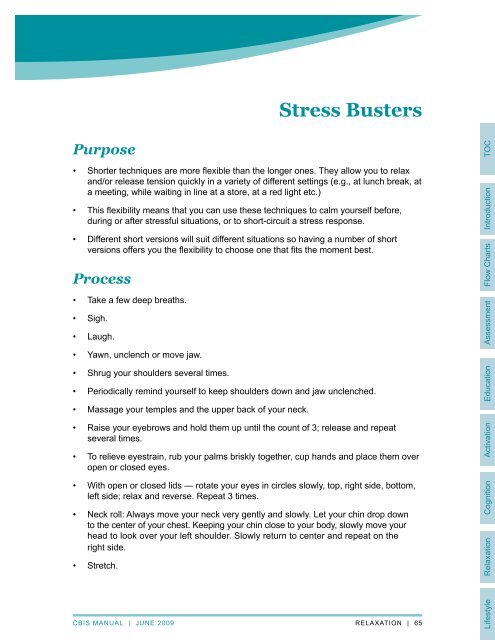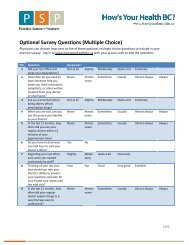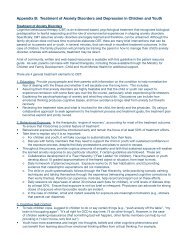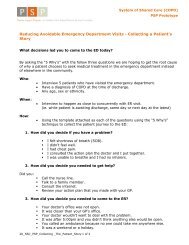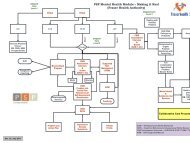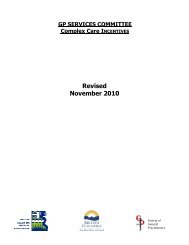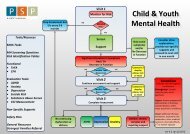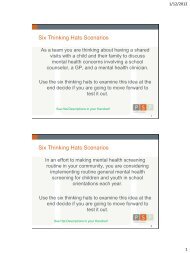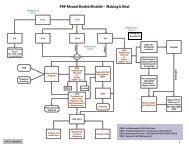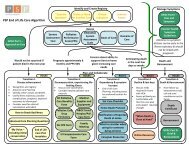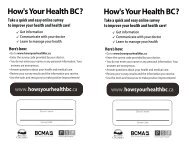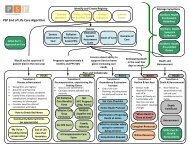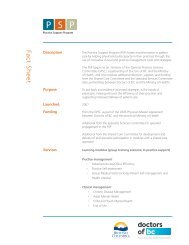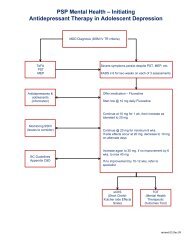cognitive behavioural interpersonal skills manual - GPSC
cognitive behavioural interpersonal skills manual - GPSC
cognitive behavioural interpersonal skills manual - GPSC
- No tags were found...
Create successful ePaper yourself
Turn your PDF publications into a flip-book with our unique Google optimized e-Paper software.
Stress BustersPurpose• Shorter techniques are more flexible than the longer ones. They allow you to relaxand/or release tension quickly in a variety of different settings (e.g., at lunch break, ata meeting, while waiting in line at a store, at a red light etc.)• This flexibility means that you can use these techniques to calm yourself before,during or after stressful situations, or to short-circuit a stress response.• Different short versions will suit different situations so having a number of shortversions offers you the flexibility to choose one that fits the moment best.Process• Take a few deep breaths.• Sigh.• Laugh.• Yawn, unclench or move jaw.• Shrug your shoulders several times.• Periodically remind yourself to keep shoulders down and jaw unclenched.• Massage your temples and the upper back of your neck.• Raise your eyebrows and hold them up until the count of 3; release and repeatseveral times.• To relieve eyestrain, rub your palms briskly together, cup hands and place them overopen or closed eyes.• With open or closed lids — rotate your eyes in circles slowly, top, right side, bottom,left side; relax and reverse. Repeat 3 times.• Neck roll: Always move your neck very gently and slowly. Let your chin drop downto the center of your chest. Keeping your chin close to your body, slowly move yourhead to look over your left shoulder. Slowly return to center and repeat on theright side.• Stretch.CBIS Manual | JunE 2009relaxATion | 65


